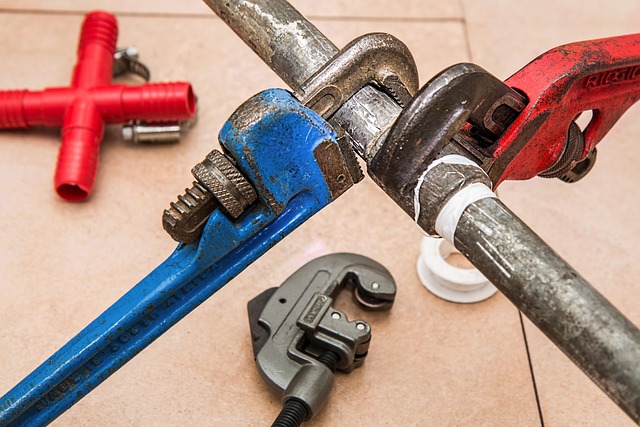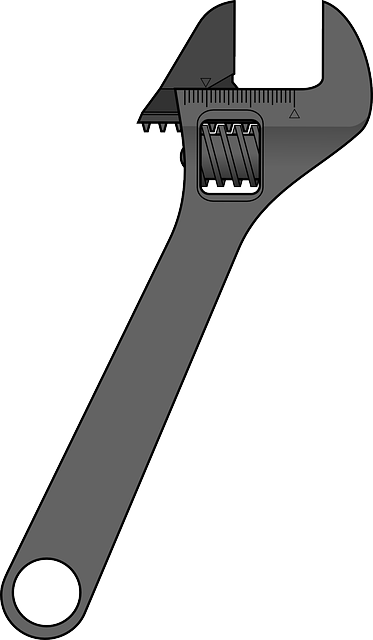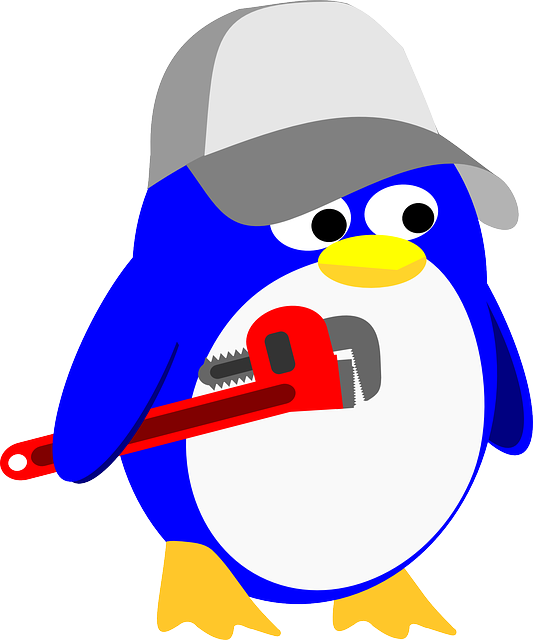Persistent leaks cause wall noises, structural damage, and mold growth. Identify noise sources through sound tracing and visual inspections for moisture. Address leaks by repairing connections, insulating pipes, & scheduling regular plumbing maintenance. Severe cases require professional plumbers to mitigate complex issues like corrosion or structural damage. Regular care prevents banging pipes, efficient water flow, & maintains home integrity.
Are banging pipes keeping you awake? Persistent leaks behind your walls can cause more than just frustration; they may indicate serious plumbing issues. This comprehensive guide delves into the common causes of noisy pipes, from corroded joints to low water pressure. We explore the impact of these leaks on your walls and offer effective solutions, diagnostic methods, and maintenance tips to fix and prevent future disturbances. Learn when it’s time to call a professional plumber for persistent leak problems.
- Understanding Noisy Pipes: Common Causes and Types
- Evaluating the Impact of Persistent Leaks on Your Walls
- Diagnostic Methods for Identifying the Source of Noise
- Effective Solutions to Fix and Prevent Pipe-Related Disturbances
- When to Call a Professional Plumber
- Maintenance Tips to Keep Pipes Quiet and Efficient
Understanding Noisy Pipes: Common Causes and Types

Persistent leaks are a common issue, often leading to noisy pipes within walls. Understanding the causes behind this problem is the first step in finding a solution. Several factors can contribute to the clanging and banging sounds, ranging from natural settling of your home to more serious structural or plumbing issues.
One type of cause involves pipe movement due to temperature changes or home settlement. As water expands and contracts within pipes, it can lead to loose connections and rattling. Another common cause is worn-out joints or fittings that require tightening or replacement. More severe cases may involve hidden leaks behind walls, caused by corroded pipes, faulty valves, or pipe damage from nearby construction or root intrusion. Identifying the specific type of noise and potential source is crucial for effective troubleshooting and repairs to stop persistent leaks.
Evaluating the Impact of Persistent Leaks on Your Walls

Persistent leaks in your walls can have a significant impact on both the structural integrity and overall aesthetic of your home. Over time, continuous water exposure weakens the material, leading to potential cracks, bulges, or even collapses in severe cases. This is particularly concerning for older buildings where pipes are more prone to corrosion and breakage.
Moreover, persistent leaks can result in substantial damage to the insulation within your walls, reducing energy efficiency. Moisture also fosters mold growth, which not only compromises air quality but may require costly remediation. Homeowners should be vigilant in identifying and addressing these issues early to prevent larger, costlier repairs down the line.
Diagnostic Methods for Identifying the Source of Noise

Identifying the source of wall-related noise can be a complex task, but several diagnostic methods can help homeowners pinpoint the issue. One common approach is to systematically trace the sound along the walls, listening for any changes in frequency or intensity that might indicate a specific location. This method, often combined with visual inspection, can reveal pipes or other structural elements causing the banging or rattling noises.
Additionally, persistent leaks nearby can be a significant indicator of noisy pipes. Water flowing through damaged or poorly insulated pipes may create air bubbles and pressure changes, resulting in loud sounds. Checking for visible signs of water damage or moisture on walls, ceilings, or floors, and verifying the condition of pipe insulation, can provide crucial clues during the diagnostic process.
Effective Solutions to Fix and Prevent Pipe-Related Disturbances

Persistent leaks from pipes can cause significant disturbances and damage to your walls, so addressing them promptly is essential. The first step is identifying the source of the noise, which may involve checking for loose connections, corroded joints, or damaged pipes. Once located, repairs can range from simple tightening or replacing sections to more complex re-piping if extensive damage is found.
To prevent future pipe-related disturbances and persistent leaks, consider insulating exposed pipes in especially cold areas to prevent freezing and resulting bursts. Regular maintenance checks by a professional plumber can also help identify potential issues early on. Additionally, installing water shut-off valves near fixtures makes it easier to isolate and repair leaks without affecting the entire system.
When to Call a Professional Plumber

If noisy pipes or banging sounds in your walls are causing concern, it might be time to consider a more serious issue. Persistent leaks and unusual noises often point to underlying problems within your plumbing system that require professional attention. While some minor issues can be addressed as DIY projects, complex issues like pipe corrosion, faulty fittings, or structural damage usually necessitate the expertise of a qualified plumber.
Calling a professional is especially crucial if the noises are accompanied by signs of water damage, such as stained walls or ceilings, or if the leaks have been persistent despite initial repairs. Plumbers have the specialized tools and knowledge to diagnose and fix problems effectively, ensuring your plumbing system operates efficiently and safely.
Maintenance Tips to Keep Pipes Quiet and Efficient

Regular maintenance is key to keeping your pipes quiet and efficient, preventing those annoying banging noises that can disrupt your peace. Start by inspecting your pipes for any signs of corrosion or damage, especially in areas prone to moisture like bathrooms and kitchens. Addressing these issues early on can prevent more serious problems and persistent leaks down the line.
Consider insulating exposed pipes to minimize thermal expansion and contraction, which can cause pipes to rattle. Additionally, check fittings and joints regularly, as loose connections are a common cause of pipe noise. Regular maintenance also involves clearing drains of grease, hair, and other debris to prevent clogs that can lead to increased water pressure and subsequent pipe noise.
